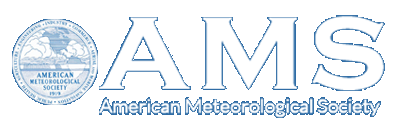Short Courses
AMS Short Course
‘Open sources’
Date: 15 September 2019
Time Schedule:
(The start time will be changed from 10:00 am.)
09:00 - 09:15 Welcome and getting started
09:15 - 09:45 Community weather radar software and Open Science
09:45 - 10:00 Launching the virtual machine
10:00 - 10:30 A feel of scientific Python
10:30 - 11:00 Coffee break
11:00 - 11:30 Collaborative development: git live demo
11:30 - 12:30 Hands on BALTRAD
12:30 - 13:30 Lunch break
13:30 - 14:30 Hands on Py-ART
14:30 - 15:30 Hands on wradlib
15:30 - 16:00 Coffee break
16:00 - 17:00 Open slot, discussion, evaluation
Location:
Room C (the second floor of the annex building)
Website:
https://github.com/openradar/AMS-Open-Source-Radar-2019
Instructors and contributors:
Scott Collis, Robert Jackson, Argonne National Laboratory.
Irene Crisologo, Northwestern University.
Joshua Soderholm, Australian Bureau of Meteorology.
Daniel Michelson, Environment Canada.
Kai Muhlbauer, University of Bonn.
Maik Heistermann, University of Potsdam.
Description:
Open Source Software (OSS) is a fundamental building block contributing to the process of Open Science. Recently, radar OSS packages have emerged that facilitate research and development, drive operational national and regional infrastructure, build community, and accelerate pushing the overall state of the art forward. Examples of such packages are the Py-ART (Python ARM Radar Toolkit), ARTView, BALTRAD, wradlib, and LROSE.
This course, which will be example driven, will introduce participants to OSS tools for working with weather radar data that use the Python programming language. The Objective of this course is to build familiarity with the suite of open source tools and provide some "cook book" examples of building workflows. Various examples using a mix of tools will be presented showcasing software compatibility. The instructors will be investigating using compute instances in the cloud to present the course as well as traditional delivery methods including the Open Radar Virtual Machine.
The course will consist of the following parts:
Introduction to Open Science concepts and collaborative methods;
The Python programming language and the Jupyter notebook;
Introduction to Py-ART, concepts and hands-on notebooks;
Introduction to BALTRAD, concepts and hands-on notebooks;
Intermediate usage including retrievals and manipulation of data using Py-ART and other Python radar applications.
Preparations:
Basic knowledge of radar and scientific programming are required. Knowledge of Python is beneficial but not necessary. Using your own laptop with at least 2 GB of memory and 1 GB of free space will be essential for the course. Software and Jupyter notebooks need to be preinstalled by participants prior to the course; instructions for preparation will be emailed in advance.
Information: Please contact Dr. Scott Collis
Email: atscollis(at)anl.gov (at)=@

